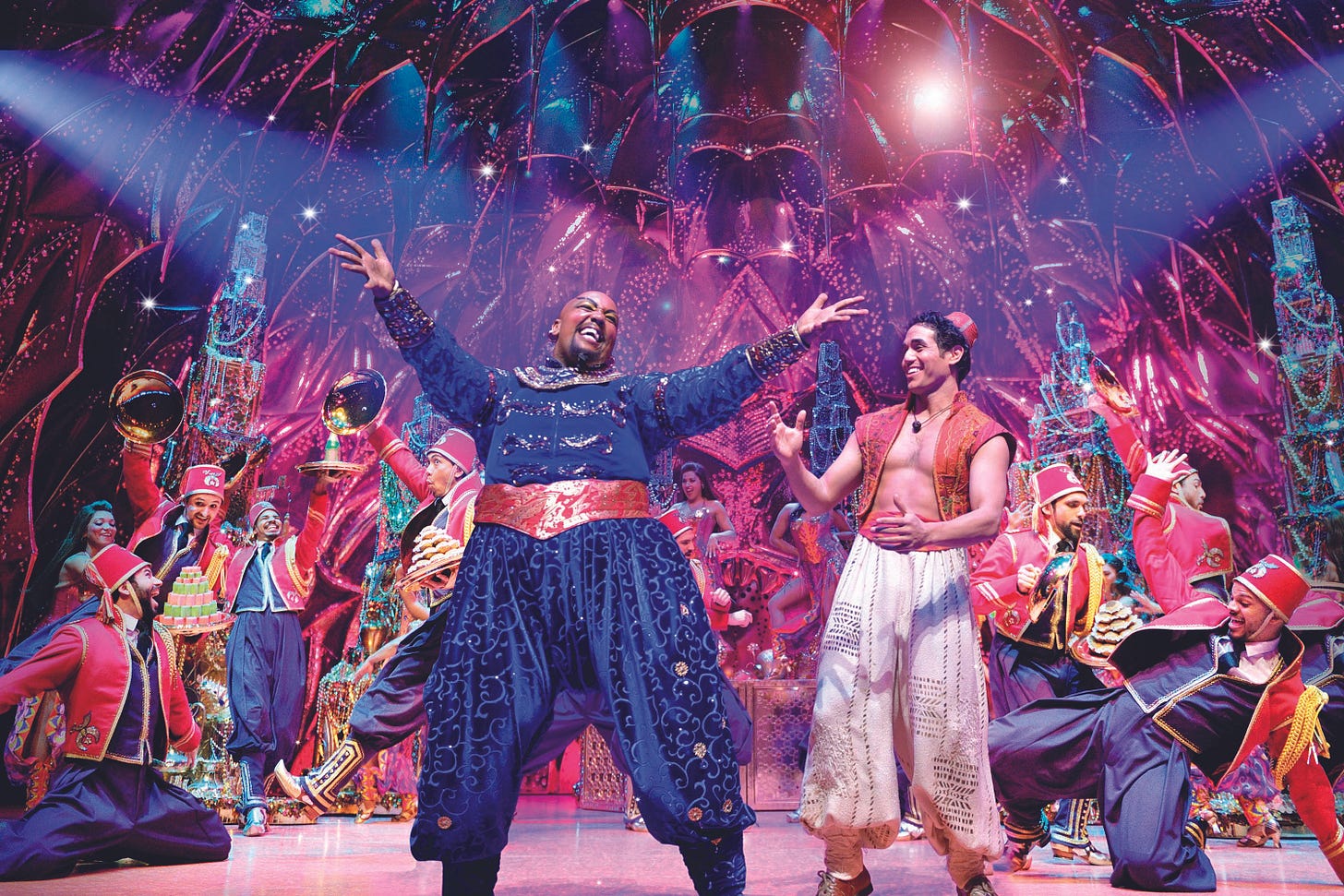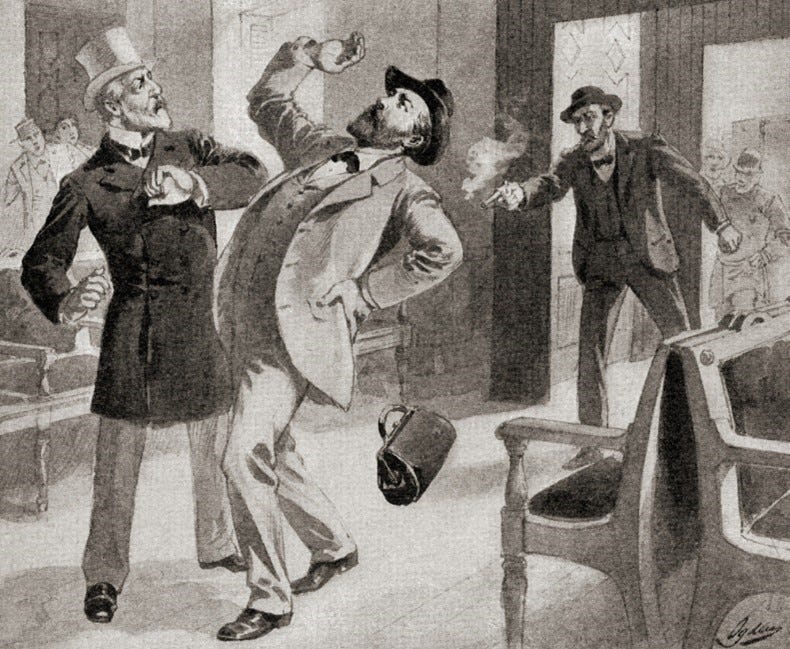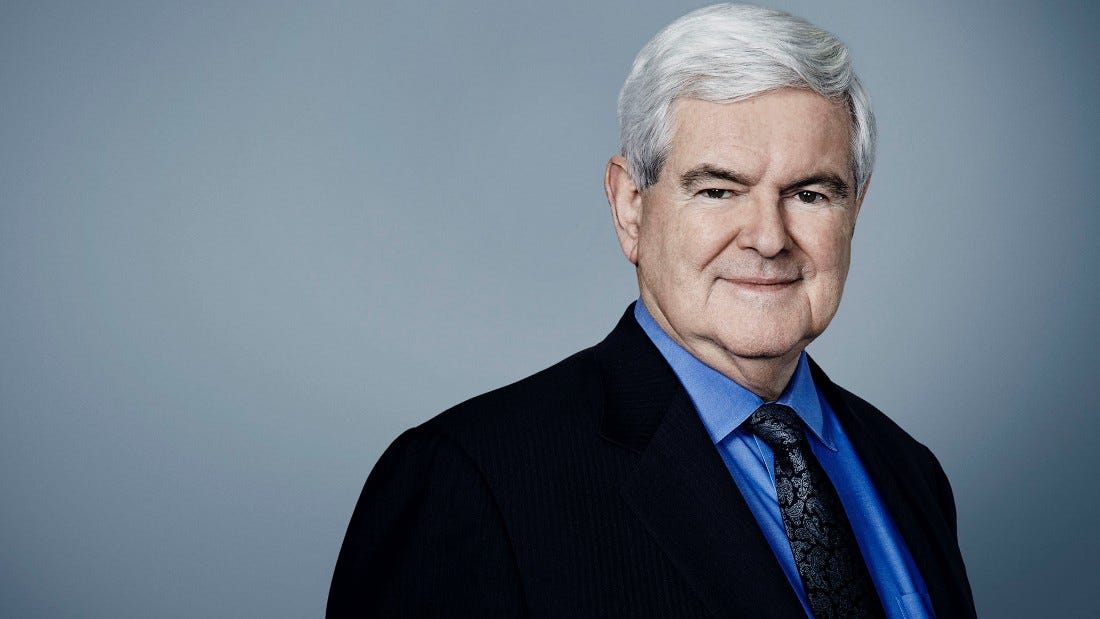A Moving Electorate
Special Elections and Primaries Are Showing a "Contract With America" isn't Possible Today
Our recent special elections, the majority of which the Republicans won (as they should have) but by margins less than spectacular—-combined with the loss in New York 19—-suggest the current electorate is all over the map. Suggestions that the GOP create a new “Contract With America” misread where the voters are right now. Indeed, many of them don’t know where they are!
Look at any list of the top issues facing Americans over the past month. The top concern has changed more often than a Broadway cast. For a while it was inflation, then immigration, then the “economy,” and always up near the top we find crime and guns. Somewhere in the middle is “election integrity,” and “climate change” or abortion is usually near the bottom with about 5%. What’s going on?
The unsettled nature of the electorate reflects the reality that both political parties have lost their ability to maintain voter discipline. But it also illustrates that when we are in a period of multiple challenges, it is difficult to focus on “the” problem for long. Just a few months ago, for example, baby formula and pending food shortages (that never developed) were the concern. Before that, skyrocketing gas prices. Before that, the Ukraine war. Certainly there are constants since the Rutabaga stole his way into office: illegal immigration is off the charts, crime in big cities is turning them all into baby Mogadishus, and the continued deterioration of the economy is looming.
For Republicans, there are two other large issues that hover in the background, election integrity and the MAGA agenda. This is a problem DemoKKKrats do not hae because they have no national figure who represents a majority of their party’s views more than any other DemoKKKrat leader. In that, they are interchangeable.
In a sense, we are in a position quite similar to that of the late 1800s. Then, several issues—-often unrelated—-dominated political discourse. First there was the spoils system and patronage, which had come to invade every aspect of government life. Presidents could barely function for their first year in office as they spent an exorbitant amount of time appointing office seekers to positions. Literally, lines ran down the block from the White House door. When they finally did attempt reform, President James Garfield was killed over a job he denied a claimant. Then there was the money question, which generally saw Republicans favor the gold standard and DemoKKKrats favoring inflation. But spoilsmen could support paper money and “Half-Breeds” as they were called could champion gold. To use Elvis’s phrase, it was “all shook up.”
Then there were racial issues. Almost entirely, Republicans supported some level of civil rights and DemoKKKrats opposed. Someone like William Tecumseh Sherman could be a Republican, but, Liz Cheney-like, oppose much of the Republican program.
The point is, the currents cut across each other many different ways, which is why a pro-gold DemoKKKrat, Grover Cleveland, supported both “sound money” and civil service reform.
Which brings us to today. Some have called for a new Newt Gingrich-like “Contract with America” for all GOP candidates. This is problematic. The original Contract was not so much a promise to pass legislation as it was a promise to bring up for a vote 10 items ranging from fiscal responsibility to crime. But the key was that a national outrage had built because of three factors: the national deficits and debt, which the DemoKKKrat-led Congress would not even address; the House Bank/Post Office affairs, where members of Congress were kiting checks and simply staying overdrawn with permanent loans; and term limits. The DemoKKKrats would not allow any of these to be brought up for a vote, thereby exposing them to the voters when they rejected these measures.
There are certainly some “Contract” measures Republicans could put forward, including a “Close Our Borders” Act; an Honesty in Education Act (banning Communist Racist Theory); and perhaps a few others, but the Republican electorate itself remains divided on such things as the Steal; support for the War in Ukraine; and removing immunity from Big Pharma for the vaxxes. Don’t forget, many current Republicans voted for these things.
Moreover, as I said earlier, the public itself—-unlike in 1994—-has not truly coalesced around the issues it most wants addressed. As a result, the Fall elections will largely be won or lost on individual candidates making their case for the one or two issues that most resonate with their electorate. Right now, trying to force any more of a national framework of issues onto candidates likely would create more disadvantages than benefits.
Larry Schweikart
Rock drummer
Film maker
NYTimes #1 bestselling author
Political pundit
For even more truth-based current events, politics, and history content + resources, check out my VIP membership below
https://www.wildworldofhistory.com/vip







